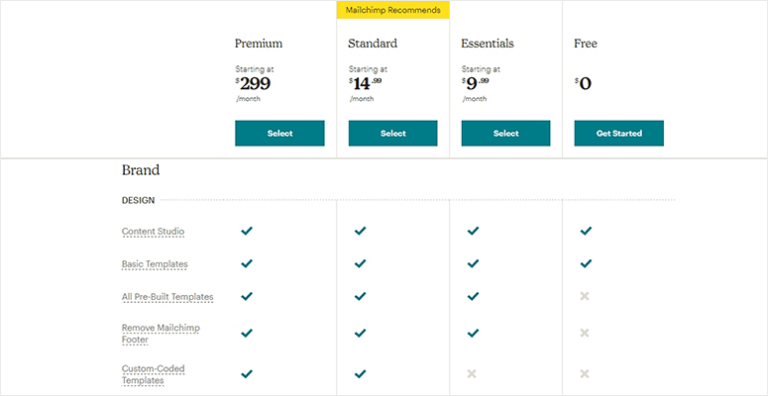The Basic Principles Of "How to Choose the Right Platform to Build your Website"

How to Choose the Right System to Build your Website
When it comes to constructing a website, opting for the appropriate system is vital. The platform you decide on are going to determine the performance, adaptability, and scalability of your website. With so a lot of possibilities accessible in the market, it can be mind-boggling to make a selection. In this article, we will definitely go over some key variables to look at when picking a system for your website.
1. Describe your targets and demands
Before diving into deciding on a system, it's important to determine your objectives and criteria for your website. Are you appearing for a basic blog or an e-commerce internet site? Do This Piece Covers It Well require state-of-the-art component like customer registration or remittance entrances? Understanding your goals and criteria will definitely assist you tighten down the choices and make an informed decision.

2. Take into consideration convenience of usage
One of the most important aspects to look at when picking a platform is its convenience of make use of. If you don't have technical understanding or encounter in internet advancement, decide for systems that deliver user-friendly interfaces and drag-and-drop capability. WordPress, Squarespace, and Wix are well-known systems understood for their user-friendly user interfaces.
3. Evaluate scalability
Scalability refers to the capability of a platform to handle improved website traffic and content as your website grows. It's necessary to pick a system that may suit future development without risking performance or user encounter. Look for platforms that offer adaptable hosting options and provide scalability attribute such as caching systems or information shipping networks (CDNs).
4. Determine customization options
Every company has actually one-of-a-kind advertising demands, so it's crucial to pick a platform that enables personalization according to your requirements. Take into consideration whether the platform offers personalized concepts/layouts or permits custom coding if required. Shopify and Magento are well-known options for e-commerce websites due to their considerable customization possibilities.
5. Examine plugin schedule
Plugins include added capability to websites without requiring personalized coding. They can improve SEO capacities, boost security action, or integrate with third-party companies. Just before wrapping up a platform, inspect the availability of plugins and expansions that straighten with your website's criteria. WordPress has a substantial collection of plugins, helping make it a prominent option for lots of businesses.
6. Assessment SEO features
Search Engine Optimization (SEO) is critical for steering all natural traffic to your website. Ensure that the system you select uses built-in SEO function such as personalized meta tags, URL designs, XML sitemaps, and mobile phone marketing. Platforms like WordPress and Shopify are recognized for their solid SEO abilities.
7. Consider budget
Spending plan participates in a significant task in opting for the appropriate platform for your website. Some systems are totally free to make use of, while others require monthly or yearly registrations. Additionally, think about potential costs linked along with multitude, domain name registration, premium motifs/plugins, and continuous routine maintenance. Examine your budget and opt for a system that satisfy your financial restraints.
8. Look for assistance and area
Having access to trustworthy help is crucial when creating a website. Look for platforms that use extensive documents, tutorials, and energetic community discussion forums where you may look for assistance if needed. A powerful assistance system can easily save you opportunity and frustration in troubleshooting issues or discovering brand new component.
Final thought
Deciding on the appropriate platform to build your website demands careful point to consider of several elements such as objectives and requirements, simplicity of make use of, scalability choices, personalization functionalities, plugin supply, SEO attribute, budget plan restrictions, and support sources available. By assessing these variables based on your certain requirements and choices,
you will definitely be capable to pick the very most appropriate system that lines up with your eyesight for an reliable online existence.
